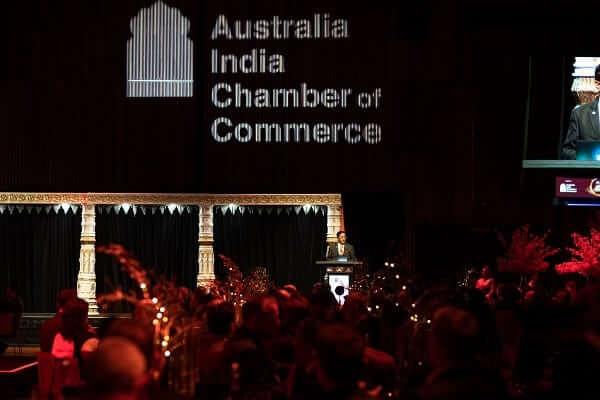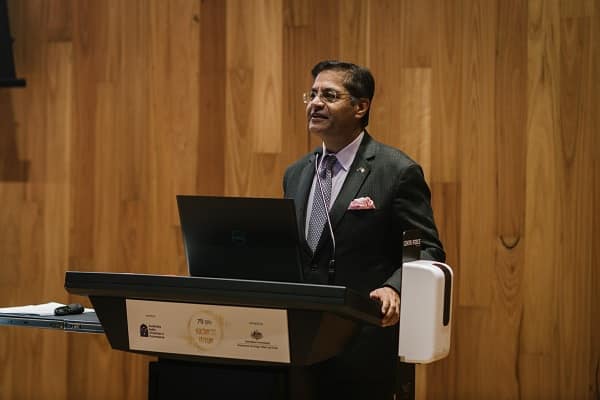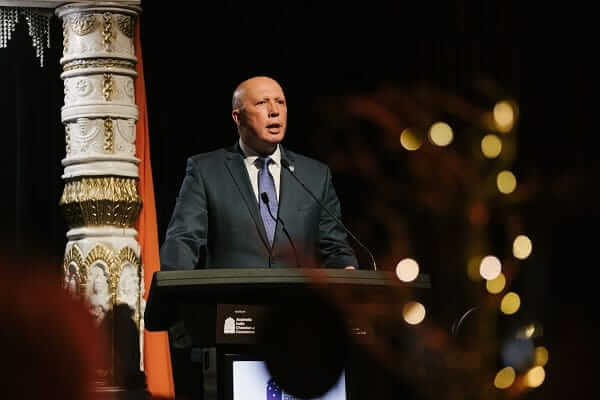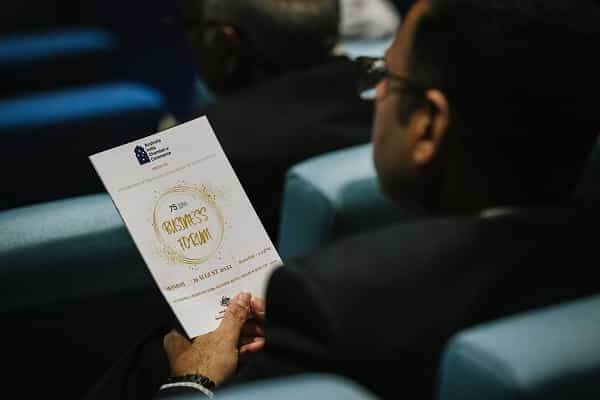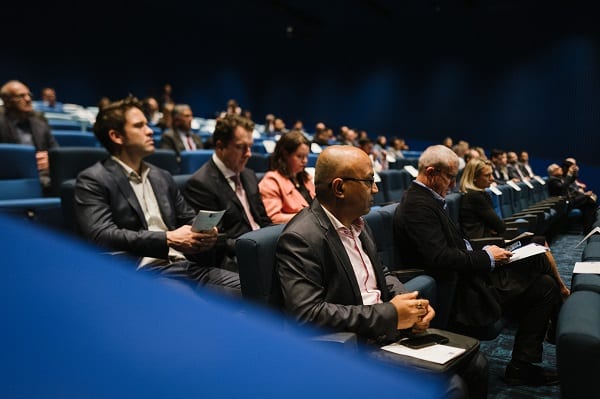The Australia India Chamber of Commerce (AICC) Gala Dinner was recently held in celebration of the bilateral relationship between Australia and India and of India’s 75th independence anniversary.
The AICC is an emerging group with a mission to promote trade and commerce between Australia and India. It has three main focus areas – advocacy, innovative exchange, and collaboration- and regularly hosts events such as expert panels and networking events.
Indeed, the Gala Dinner followed on from the AICC Business forum – a networking event for businesses interested in or connected with India, now in its second year. In his address, Executive Director Harish Rao noted India’s success since its 75 years of freedom, contrasting the rise of the Indian CEO with Winston Churchill’s disproven theory in 1947 that India could not stay united.
The evening was attended by various dignitaries including Minister for Trade and Tourism Don Farrell, Minister for Immigration Citizenship, Migrant Services and Multicultural Affairs Andrew Giles, and leader of opposition Peter Dutton. Clearly, despite the change of government at the 2022 election, Australia’s visible ‘pivot’ to India remains at the forefront of its foreign policy objectives and is supported across the political divide.
Cultural compatibility between India and Australia, underscored by the democratic link between the two nations, was a focus of much of the discussion. It was noted by the High Commissioner of India to Australia Manpreet Vohra that India is soon to become the worlds biggest population, and has proven that democracy and large populations can work. Australia and India were made out to be natural partners – sharing values of diplomacy, tolerance and democracy.
Insights about common socio-political values drove home the message that it is now time to get Australia thinking beyond the ‘3 C’s’ of cricket, curry and the Commonwealth. It was noted that there is a lack of ‘India literacy’ in Australia, particularly in corporate Australia which is yet to be fully exposed to 21st century India. There is an increasing imperative for Australian boardrooms to move beyond beliefs and biases about India being a hard place to do business and embrace what is fast becoming a liberalised and globalised country.
Whilst there was much discussion about the cultural and social links between India and Australia, it was put forth by various speakers that the economic relationship between the two nations has yet to reach full pace. There was much optimism about the opportunity that India presents (including from Ricky Ponting who sees it as an emerging market for his new wine label!) and an underlying recognition that harnessing the relationship with India was a challenge for Australia to rise to.
READ MORE: Labor’s India legacy: How Albo can take it forward
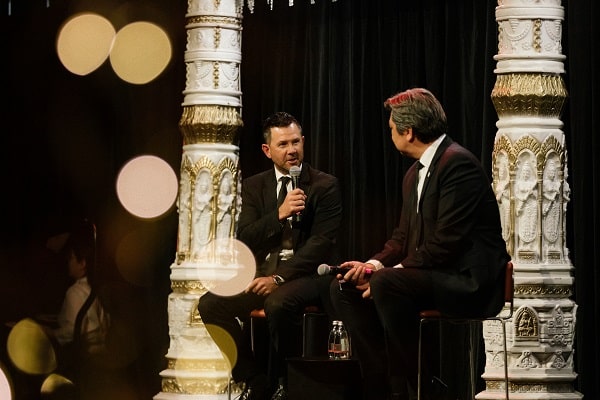
The Australia India Economic Co-Operation and Trade Agreement (ECTA) was raised as an example of our growing relationship. According to Manpreet Vohra, the ECTA was concluded relatively quickly and painlessly – which is a positive sign of the relationship between the India and Australia given it covers the gamut of commercial relationships.
India’s rapidly growing manufacturing economy, and successes in IT, pharmaceuticals and other industries led to the suggestion that Australia should be looking at India as more than just an export destination for minerals and education. The ECTA will make it easier to exchange students, professionals and tourists, and removal of tariffs will be a critical jump over a hurdle to enter the Indian market.
The dinner was in support of Asha, a charity which aims to empower Indians in poverty by facilitating education. The videos shown of the slums in New Delhi contrasted heavily with the ‘new India’ that was being showered with praise. Whilst nice to be in such an optimistic room with speakers taking a positive outlook about India and its future, the videos reinforced some scepticism about whether India has been able to sufficiently grapple with challenges such as corruption and poverty that will allow it to reach its full potential.
There is no doubt, however, that India is fast becoming a major security power in the Asia Pacific. The alignment of India and Australia’s geopolitical interests was a point of conversation and the bipartisan recognition of the importance of the security relationship was on display with both Don Farrell and Peter Dutton mentioning our various common regional objectives. Conversation about growing convergence of views on geopolitical issues suggested that there may in fact be a fourth ‘C’ in the equation here.
In addition the insights, attendees were treated to a Bollywood dancing, a speed painting exhibition and a fantastic Indian spread curated by chef Adam D’Sylva of Tonka and Coda fame. Some top wines by Ponting Wines and a conversation with Maestro Zubin Mehta made the night one to remember.
Maestro Mehta shared that he was at the Gateway to India on 15 August 1947 and spoke about what Independence meant to one of the world’s most recognized composers: his father was a violinist in British India and would eat his post-show dinners in a separate corner for Indians, and Maestro Mehta is today recognized as one of India’s greatest exports.
Ultimately, the AICC dinner was about celebrating India – and it did so successfully. Those in the room were left with a sense of optimism about India’s path forward and the relationship between Australia and India. They were also challenged to harness that and engage with the emerging giant.
READ MORE: AIBC Annual Address and Gala Dinner: Two differing views




